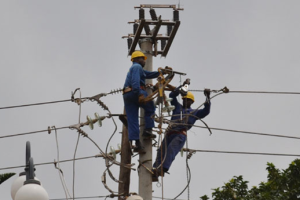
ADDIS ABABA – The government of Ethiopia is taking actions to mitigate the impacts of air pollution which claims the lives of about ‘12,000’ citizens annually, according to Environment Forestry and Climate Change Commission.
Air pollution, monitoring and controlling Senior Expert with the Commission Meseret Abdissa told The Ethiopian Herald that, with rapid urbanization and development most African countries in general and Ethiopia in particular are facing an environmental pollution challenges.
Ethiopia has witnessed a significant growth in population and urbanization especially in the last two decades. But air pollution monitoring data and research study on Environment and health effect is limited due to insufficient air quality monitoring networks and different factors.
Among the challenges to control air pollution in Ethiopia are lack of awareness on the magnitude of the problems and its adverse impacts on environment, human health, and the economy, limited air quality monitoring station, non-availability of air quality data base line on air pollutant emissions in the country, lack of regulation on vehicle emissions and lack of national air quality action planning strategies and programs, Meseret pointed out.
The country’s ambient air quality data is managed by National Meteorology Agency whereas the Environment, Forest and Climate Change Commission and the Ministry are responsible to monitor and control environmental compliance related to air quality, Meseret stressed.
There are seven air quality-monitoring stations across the country, out of which five are in Addis Ababa while the remaining two are found in Adama and Hawasa. Dr. Addisalem Abathun Dean of College of Natural and Computational Sciences says still there is hope of solving this global problem and every individual should discharge its responsibility in addressing it.
“In my opinion Scientists, researchers, students and academicians should do more in developing new technologies that would support the policy makers to plan for sustainable future” as to Dr. Addisalem. Dr. Addisalem further stated that, we need to ensure that we do proper assessment of societal impact of air pollution and project impact of future changes in human activities and climate on air quality.
In order to do that we need to invest in infrastructure development in our universities through which the state of the art modeling can also be done and we could forecast air quality in fine details and by doing so we should able to undertake foresighted processes, she stressed.
Dr. Samba Haroma Head of UNEP Liaison Office to AU, UNECA and Representatives to Ethiopia speaks that, now a days environmental pollution is the issue of global societies and the world celebrates the day every June 5.
On half of world population’s lives in urban areas and only 12 percent of cities, have air quality measures that meet WHO standards, Dr. Samba noted.
The Ethiopian Herald, June 15/2019
BY HAILE DEMEKE





